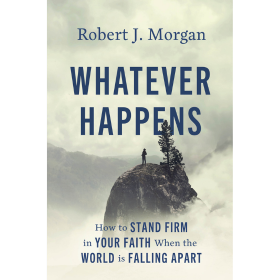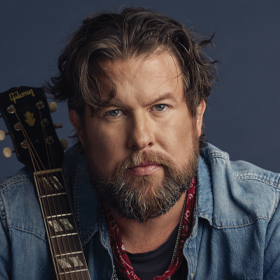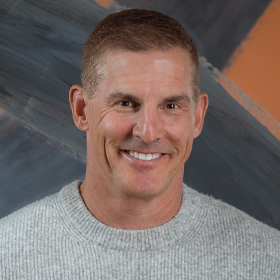By Robert J. Morgan 
Anticipation keeps me going. What about you? Do you feel the need to look forward to what’s ahead—a vacation, a weekend at the beach or in the mountains, the birth of a child or grandchild, the diploma that concludes your studies, the day you retire, or even the fresh taste of tomatoes in summer?
Over the past five years, I’ve grappled with three tremendous losses. Because of my wife’s multiple sclerosis, I stepped away from my life’s work of pastoring. That was a greater loss than I realized at the time. Sometime later, Katrina passed away. And then my dream of serving in my own local church of forty years evaporated. I was no longer needed.
For months, my thoughts troubled me during the day and my dreams at night. And then the Lord gave me two verses of Scripture that spoke clearly to my weary soul. Isaiah 43:18–19 says,
“Forget the former things;
do not dwell on the past.
See, I am doing a new thing! Now it springs up; do you not perceive it?
I am making a way in the wilderness
and streams in the [desert].”[i]
A few months later, my grandson, Elijah, and I visited Israel and went hiking in En Gedi. This is a curious valley in a barren wilderness. All around this gorge, everything is hot and desolate. The distant Hebron mountains to the west, made of limestone, soak up the rain like a reservoir. That water travels a long way through underground fissures, all the way out to the rocks of En Gedi. There, water surges like fire hydrants. Splashing waterfalls cascade through the valley. There are streams in the desert, and it seemed as though the Lord was saying, “See, this is what I’m talking about.”
That passage in Isaiah—“Forget the former things; do not dwell on the past. See, I am doing a new thing”—It reminds me of Paul’s words in Philippians 3:13–14: “Forgetting what is behind and straining toward what is ahead, I press on toward the goal to win the prize for which God has called me heavenward in Christ Jesus.”
We should always exercise future-oriented therapy—the biblical practice of knowing our best days are ahead and that even after this life, we have the certain hope of heaven and the resurrection body.
Why don’t we dwell on these things more? Why aren’t we more excited every day about the glorious future God has revealed to us in His Word? We get so caught up in the here and now that we forget the then and there.
The contemplation of our future inheritance in Christ, our heavenly home, our glorious reunion with the saints of all the ages, and our mansions in the new earth and in the city of New Jerusalem would save us from much of the despair and depression that dogs us here on earth.
Philippians 3:20–21 is one of the Bible’s great statements about this: “Our citizenship is in heaven. And we eagerly await a Savior from there, the Lord Jesus Christ, who, by the power that enables him to bring everything under his control, will transform our lowly bodies so that they will be like his glorious body.”
_____
Adapted from Whatever Happens: How to Stand Firm in Your Faith When the World is Falling Apart by Robert J. Morgan. Click here to learn more about the book.
Do you struggle keeping your faith in a world that’s losing its mind? These 31 short chapters take a deep dive into the book of Philippians, which Robert Morgan says is the Bible’s handbook for tackling each day with an undaunted attitude.
Life is unpredictable, and the world is unstable. People have never been so confounded, sensing our culture, economy, and geopolitical systems are spiraling downward. Even in our personal lives, none of us knows what will happen next—which is why God gave us the book of Philippians. This short letter—just over 100 verses—can help us learn to live overflowing lives in an overwhelming world.
Philippians is one of the most practical books of the Bible, which Robert Morgan says is as fresh as ever. Its theme can be summed up in these verses: “Whatever happens, conduct yourself in a manner worthy of the gospel of Christ. Then . . . I will know that you stand firm in the one Spirit, striving together as one for the faith of the gospel without being frightened in any way by those who oppose you” (1:27–28). Among the many lessons in Whatever Happens, readers will learn how to:
- Use prayer to energize their life
- Make today about others
- Stay as cheerful as possible in all circumstances
- Let others lean on their strength
- Start everything with praise and end everything with prayer
As the apostle Paul wrote his letter to the Philippians from a prison cell, he was facing dire circumstances and an unsettled future. Would he be released or executed? But he knew one thing—that whatever happened, he was going to stand firm in his faith and live a life worthy of the gospel. And no matter what we are going through today, we can do the same.
Robert J. Morgan teaches the Bible each week on his podcast, The Robert J. Morgan Podcast, and through his speaking engagements and his books, including: The Red Sea Rules, The Strength You Need, 100 Bible Verses That Made America, The 50 Final Events in World History, and Then Sings My Soul. He also serves as associate pastor at World Outreach Church in Murfreesboro, Tennessee.
[i] The last word of the verse is my own paraphrase. The NIV uses the word “wasteland.”
Whatever Happens is published by HarperCollins Christian Publishing, Inc., the parent company of Bible Gateway.






 By Zach Williams
By Zach Williams By Craig Groeschel
By Craig Groeschel